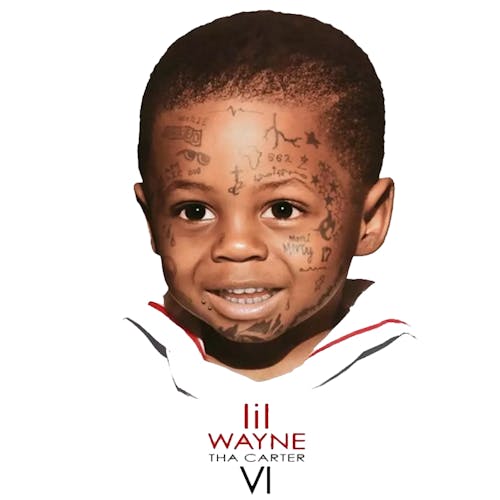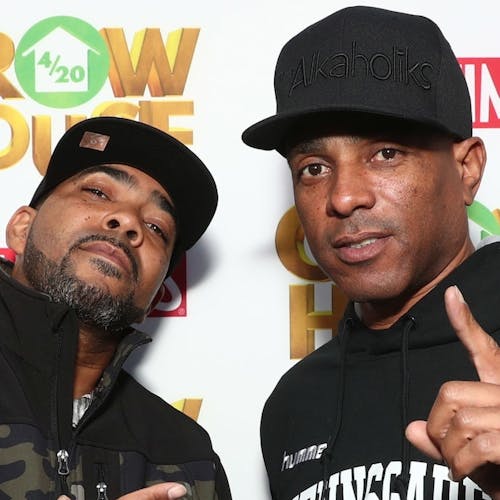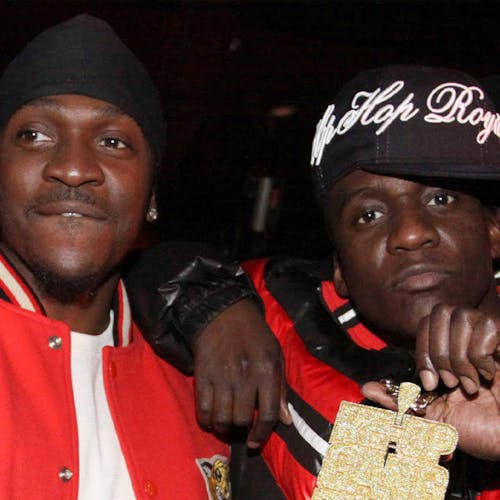
Hip-Hop History Month: Spoonie Gee - The Godfather Of Rap
Hip-Hop History Month: Spoonie Gee - The Godfather Of Rap
By Jay Quan
Published Mon, November 11, 2024 at 10:55 AM EST
By the last quarter of 1979, there were no less than 20 Rap records on the market.
These records were produced and distributed mainly by fly-by-night independent record labels hoping to cash in on this new “talking music” that many people predicted would fizzle out by the next year. Most of these records were made by people who weren’t even recording artists, and the songs were merely parodies of the authentic rap that existed on the street half a decade before. With the exception of “Christmas Rappin’” by Kurtis Blow, most of these songs didn’t contain any subject matter outside of braggadocio, and the majority had no replay value.
But amongst these records was a song called “Spoonin’Rap” by an MC named Spoonie Gee on Peter Brown’s Sound of New York record label. According to Spoonie: “My name was originally spelled 'Spoony' and I changed it to 'Spoonie.' That’s a typo on 'Spoonin' Rap.' It should have been 'Spoonie Rap.'" “Spoonin’ Rap” stood out for several reasons. Most Rap records at the time were musically based on Disco and the rappers on the recordings used a cadence similar to “Jive Talking” radio D.J.’s like Hank Span, Gary Byrd or Jocko.
“Spoonin’ Rap” had a slower tempo and a funk track with a repetitive bass line that was more reminiscent of a Hip Hop D.J. manually manipulating a funk break than the band which actually supplied the music. Spoonie’s cadence was laid-back, but extremely confident. It was the conversational style that Rap cadences would transform into many years later, but Spoonie possessed it out of the gate.
Spoonie Gee was once one third of a Harlem based rap group called the Treacherous 3 along with Kool Moe Dee, L.A. Sunshine and D.J. Easy Lee. Kool Moe Dee shared how the group learned of Spoonie's exit in a 2003 interview with The Foundation. “Spoonie made a record called 'Spoonin’ Rap'. He came over to Easy Lee’s one day and said 'Check this out.' I thought he had a break beat or something and he said that he made a record. I thought that it was gonna be some Atlantic City boardwalk in-the-booth shit, but it was a real record and he wanted to separate right then."
DROP YOUR EMAIL
TO STAY IN THE KNOW
Spoonie went solo and Special K, (who was Moe Dee’s classmate at Norman Thomas High School), joined the group. Spoonie Gee’s uncle by marriage was Bobby Robinson – founder of Enjoy Records – who wanted to capitalize on this new music that he was hearing all around Harlem, even from his son the late Ronnie D of The Disco 4 (who eventually recorded on Enjoy). Bobby signed Spoonie and The Treacherous Three and released “Love Rap” and its flip side “The New Rap Language” in 1980.
This single was pivotal in the history of Rap recordings. Credited to Spoonie Gee & The Treacherous 3 with D.J. Easy Lee, “The Love Rap” produced by Pumpkin was the first Rap recording to become a break beat with D.J.’s buying several copies to spin behind their M.C’s, or to add to their D.J. sets. Pumpkin’s drum pattern which was his interpretation of Tower of Power’s “Squib Cakes” is the foundation and backdrop of many early 80’s routines and any old school tape will contain various M.C.’s rhyming over it. “The Love Rap” was also the first time that a Rap record contained only a drum beat and no other instruments. This wouldn’t be attempted again until the Larry Smith produced “Sucker Mc’s” by Run D.M.C. three years later.
“The New Rap Language” and the “fast rap” style associated with it is the precursor to the triplet style that dominates mainstream rap today. The style demonstrated on this record was immediately mocked by many M.C.’s and it endures as one of the few from that era that has truly stood the test of time. Not only is this single one of the greatest from the first decade of Rap recordings, it is one of the most important and influential in the genre’s history.
By 1980 Spoonie made history becoming the only Rap artist to have three record label deals within a year. He signed with Sylvia Robinson’s Sugar Hill Records and though his stay was brief, his impact was huge. Spoonie’s first Sugar Hill release was a collaboration with the newly signed all female group The Sequence. Spoonie’s trademark intro from “Spoonin’ Rap”, “Ya say a one for the trouble two for the time come one y’all lets rock the (whistle sound)” opened “Monster Jam” and gave us a further peek into the persona of the self proclaimed “Cold Crushin’ Lover”.
There was a playful sexual tension between Spoonie and the Sequence on the record and The Sequence performed it live with Spoonie quite a bit. Cheryl The Pearl of The Sequence chuckles “JayQuan, Spoonie was so shy and suffered from stage fright so bad that he would go onstage with his eyes closed to do his rhymes. He was used to the smaller clubs in New York, but when we did the Sugar Hill Revue and played arenas he couldn’t do it. We would have to talk him into going onstage sometimes.”
Spoonie was the consummate ladies man and he showed it on every recording up to that point. Tuff City Records founder Aaron Fuchs who later signed Spoonie to a deal states “Just about every Spoonie song begins with him in a car pursuing a young lady”. Big Daddy Kane goes as far as calling Spoonie the prototype for the gangster rapper due to his early references to cars and women and his line in “Spoonin’ Rap” :
“I said where's your man she said he's in jail I said come on baby cause you're tellin' a tale cause if he comes at me and then he wants to fight see I'm a get the man good and I'm a get him right, I'm a roll my barrel and keep the bullets still and when I shoot my shot, I'm gonna shoot to kill.”
In 1981, Spoonie released “Spoonie Is Back” to the same instrumental track that his Sugar Hill label mate Busy Bee used for “Making Cash Money”. “Spoonie Is Back” contained one of the most vulnerable lyrics recorded on a Rap song at that point. While his contemporaries were still saying “Yes yes yall” and “Throw your hands in the air”, Spoonie rhymed:
“Now she was a lady who lived in the past/ whose life I thought would always last/ she would wipe my tears when I used to cry/ made me feel better when I thought I would die/ helped pick me up when I felt so down/ put a smile on my face that takes the place of a frown/ she took care of me from the day of birth/ if it wasn't for her I wouldn't be on Earth/ or even exist to tell you the truth /or reach this time in my prime of youth/ from then til the end she was my friend/ even though I will never ever see her again/ sometimes I cry but only wasted tears cause she's been gone for about 4 years/no matter what I do or how I act there's nothing in the world to bring mother back and you know that.” After one of the most poignant lines in early rap about how his Mothers death affected him, he smoothly transitioned to his next line about how great a lover he was.
By ’82 Spoonie parted ways with Sugar Hill, and the last thing that he did there was an un credited co writing of “”The Message II (Survival)" with Melle Mel, performed by Mel & the late Ed Fletcher aka Duke Bootee. Spoonie told JayQuan in 2005 “There’s a part on 'The Message II' about jail and the game of survival. I used those same rhymes on 'Spoonin’ Rap' 3 years earlier .I helped out with 'Survival' to get out of my contract with Sugar Hill. Sylvia was great and we got along well, but some things just weren’t meant to be. ”
By 1983, Spoonie was signed to Tuff City Records where he released the Davy DMX produced “The Big Beat”. “The Big Beat” predates Davy’s break out hit “One For The Treble” and you can hear the drum machine programming and bass line that would soon become the trademark Davy DMX sound. Spoonie had not abandoned his lover persona at all, if anything it was bigger than ever. The song starts with a telephone conversation where Spoonie calls a young lady and tells her that he’s on his way over.
“The Big Beat” is six minutes and five seconds of Spoonie doing what he does best – seducing his female audience. Spoonie even assumes a seductive vocal tone, which was likely a skill acquired from his time with his mentor Sylvia when she would instruct him to “sound more sexy” on his Sequence collaboration. She gave Master Gee from The Sugar Hill Gang the same instruction when they recorded “The Lover In You” and she would definitely know a thing or two about seductive vocal tones. “The Big Beat” came complete with the sound of box springs melodically bouncing along with the beat during the bridge of the song.
Songs like “Street Girl”, “That’s My Style” (directed at the up and coming Schooly D) and “Get Off My Tip” kept Spoonie relevant in the drum machine era of Rap music and also created momentum and anticipation for Spoonie’s first (and only) full length offering – 1987’s “The Godfather of Rap”. With production from Marley Marl and Teddy Riley, the man who earned his nickname because he insisted on eating all of his food with a Spoon as a child put the lover persona on the back burner.
Spoonie delivered an album that placed him in the same box as Doug E. Fresh – one of very few M.C.’s that existed and flourished in the first era of recorded Rap, The Drum Machine Era and the Golden era. (Spoonie appeared on Doug’s first record “Pass The Boo-Dah” by The Boodah Bliss Crew).The success of “The Godfather” placed Spoonie on stages and play lists with The Jungle Brothers, Public Enemy, Boogie Down Productions, Big Daddy Kane, Kool G. Rap and many of the artists that Spoonie actually influenced almost a decade previous.


The lead singles were “The Godfather” and “Take It Off”. On “The Godfather” Spoonie ditches the laid back vocal tone and assumes the stance of a man who wants people to remember that he was one of the first in this game. On “Take It Off” it’s obvious that Spoonie is a student of the game and he understood that cadences had changed in the 8 years that Rap had been a recorded medium. He explains “Yeah I was tryin’ to do something different. Like I didn’t rhyme just the last words of my sentences, I was adding another word.
Like “Two just chilled they never say no to me always say that they willdo whatever I want them to , when I confront them to , stay out the way or you just might bump into”. Or “When the time comes and it’s you I’m thinking of, your sign won’t make a difference only how you make loveto me – you make me feel so good as a man oh baby you’re sweet as cotton candy.” Even though Spoonie revisited the lover man theme on “Take It Off” he was a lot more aggressive in his delivery and the beat made you forget that it was a song about the ladies.“ Yeah I started those songs in Marley’s living room and we took them to the studio to finish them.”
“The Hitman”, “All Shook Up”, “Did You Come To Party” and “Mighty Mike” (an ode to Mike Tyson) rounded out a well put together album that re established Spoonie Gee and introduced him to a generation that may have been unfamiliar with his work. Spoonie has popped up on a Treacherous 3 song here or there over the years and he does shows whenever he feels the urge, but he has been relatively quiet for quite some time.
“I don’t hang around too much – it’s not real easy to catch up with me. People may see me in the streets and say “This guy in England wants to talk to you” I usually say “That’s ok I’m good”. It’s not I think that I’m all that either. I’m just very private man. What I respect about you Jay is that you don’t ask no real personal joints. You keep it respectful, like it should be. I may come back and do music at some point, but I won’t be talkin’ about me or no girls. I’ll be glorifying God.”



